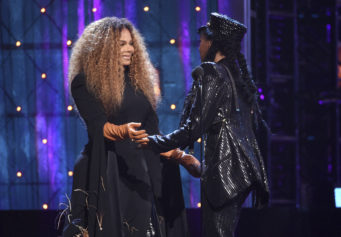The Rock and Roll Hall of Fame’s new class of inductees for 2013 will be announced later Tuesday at a news conference in Los Angeles. While the event generally prompts high fives among fans of the winners, the list also provokes an annual debate over who gets in and why.
The Rock and Roll Hall of Fame Foundation oversees the nomination process. Its head, Joel Peresman, chafes at the frequent suggestion that the inductees are picked by a handful of guys in a smoked-filled room. “That’s just not true,” Peresman says. “It’s truly a committee of people that are smart; it’s truly a committee of people who care. These people know what they’re talking about.”
There are approximately 35 members on the nominating committee, including a mix of music journalists, scholars, performers and business people. But there’s still a problem with that group, according to Neal Walls. He runs the website Future Rock Legends, which is devoted to the minutia of the nominating process.
“Most of them were born in the late ’40s, mid-’50s, and so they had their adolescence and their teenage years in the ’60s, when rock and roll was really exploding,” Walls says. “When you look at the inductees, there have been more inductees that had their first record in the 1960s than all the other decades combined.”
The committee creates a list of about fifteen Hall of Fame nominees, who are voted on by a group of about 600 past inductees and others in the music industry. According to published Rock Hall guidelines, inductees are picked based on their influence and the significance of their contributions. Performers are only eligible for the honor 25 years after the release of their first recording. Musician and journalist Greg Tate says there’s even a problem with that.
“It’s still a conversation among fans about music that really transformed their life, but it might be a little too early to talk about how that music made a lasting contribution to American culture,” says Tate. “I think if you’re talking about a fifty-year mark, you’re more in an acceptable zone of measuring impact and significance (of music on culture, not the influence of music on a particular generation of consumers).”
Read more: David Barnett, NPR


